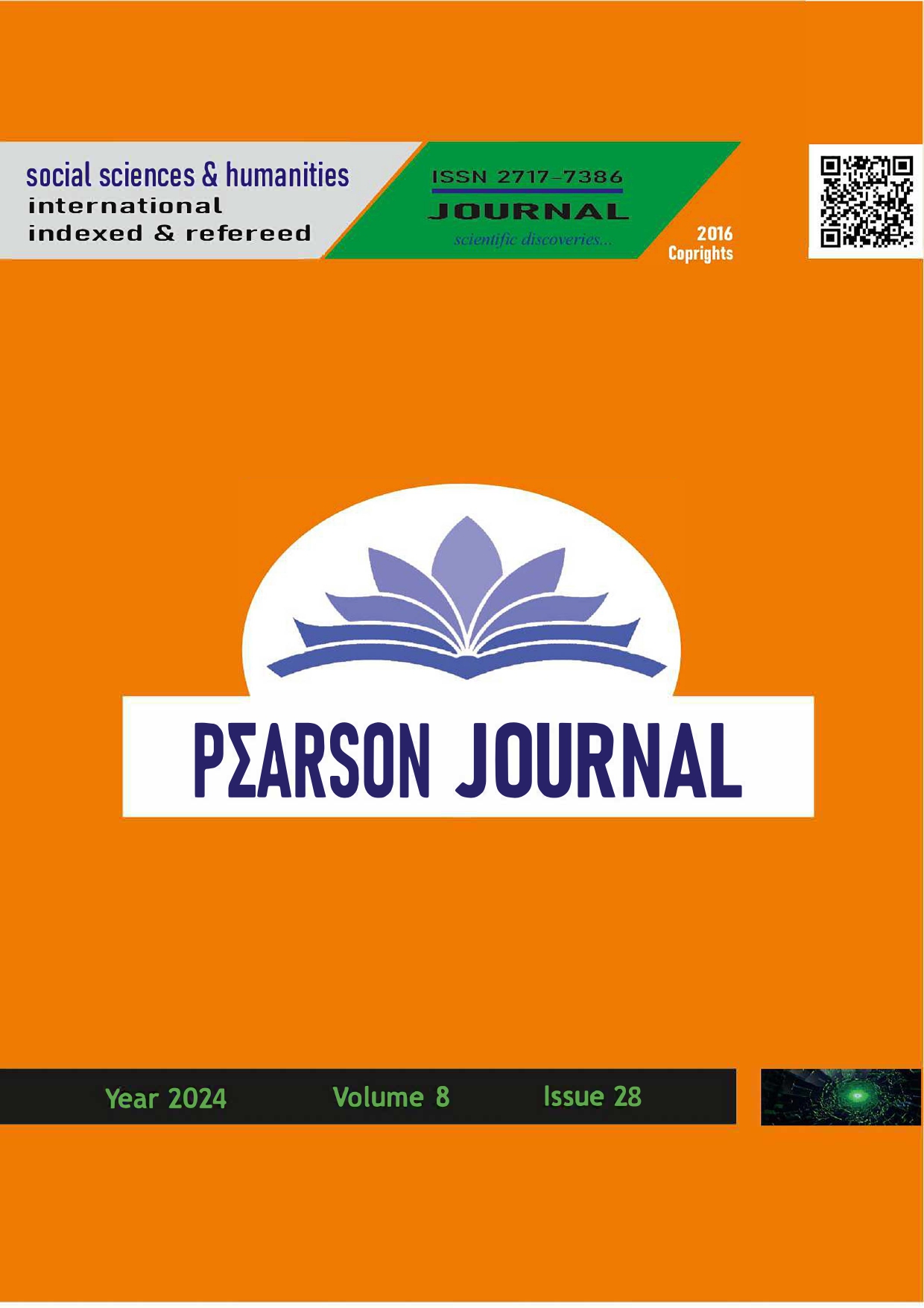A Review Of Stress Coping Strategies On How To Predict Your Relationship With Happiness
DOI:
https://doi.org/10.5281/zenodo.11613570Keywords:
Stress, Techiques to Cope With Stress, Subjective Well-BeingAbstract
Stress, which we encounter in every area of our daily lives, is an introverted reaction of individuals when faced with a threat or possible difficulty. Although many studies have been conducted on stress, it is seen that there is still no definitive definition. Stress is a psychological disorder that pushes and threatens the limits of the individual mentally andphysically. Stress is a disorder that occurs as a result of the physical and mental threat of the organism in the face of a situation that affects the individual as perceived. . The use of some techniques to cope with stress is an important factor in reducing the effect of stress. In order to increase the health and life satisfaction of individuals, stress and being able to cope with this stress appear as an important research topic in the literature. In the field of psychology, research was carried out on negative emotions in general in the 19th century, but it is seen that there was no focus on positive emotions. In this context, it is seen that subjective well-being is an important issue in stress management for the individual to be healthier. Stress management consists of situation management, and techniques that help the organism to lead a happier, healthier, more productive and quality life. Subjective well-being is defined as the ability ofindividuals to evaluate life cognitively and emotionally. It is seen that individuals with a high level of subjective well-being can use their problem-solving skills adequately in stress management, exhibit altruistic behaviors and have more resistance to stress.
References
Akçakaya ÖR, Erden ÇS. Stres ve stresle baş etmede psikiyatrik yaklaşım. Turkısh Family Physıcıan [Internet]. 2014 [cited 2018 May 24]; 5(2): 18-25. Available from: http://turkishfamily physician.com/ wp-content/uploads/2016/08/C5-S2-stresle-bas etmede-psikiyatrikyaklasim.pdf.
Akdeniz V. Otojenik eğitim ve otojenik eğitim teknikleri. Kent Kültürü ve Yönetimi Dergisi: Kent Akademisi: Gündem Başlıkları [Internet]. 2010 [cited 2018 May 24]; 3(4). Available from: http://www.kentakademisi.com/otojenik-egitim-nedir/10426/.
Balaban, J. (2000). Temel eğitimde öğretmenlerin stres kaynakları ve başa çıkma teknikleri. Pamukkale Üniversitesi Eğitim Fakültesi Dergisi, 7(7), 188-195.
Bursa İl Milli Eğitim Müdürlüğü. Nefes ve Gevşeme Egzersizleri [Internet]. Bursa Temel Eğitim Sonrası Kariyer Danışmanlığı Projesi, Kitapçık No: 10. [cited 2018 May 23] Available from: http://img.eba.gov.tr/275/6f7/97e/86d/a63/0c4/b0a/b15/205/999/ae3 /15e/622/d24/026/2756f797e86da630c4b0ab15205999ae315e622d2 4026.pdf?name=NEFES%20ve%20GEV%C5%9EEME%20EGZE RS%C4%B0ZLER%C4%B0.pdf
Çevik, H., Özcan, Ö., & Munusturlar, S. (2018). Boş zaman yoluyla stresle baş etme inancı ölçeği ve boş zaman yoluyla stresle baş etme strateji ölçeği’nin faktör yapısının Türkiye örneklemine yönelik sınanması: geçerlik ve güvenirlik çalışması. SPORMETRE Beden Eğitimi ve Spor Bilimleri Dergisi, 16(2), 36-50.
DeFrank, R. S., ve Ivancevich, J. M. (1998). Stress on the job: An executive update. The Academy of Management Executive, 12(3), 55-66.
Demir, V. (2014). Bilinçli farkındalık temelli hazırlanan eğitim programının bireylerin depresyon ve stres düzeyleri üzerine etkisi (Master’s thesis, İstanbul -Arel Üniversitesi Sosyal Bilimler Enstitüsü).
Doğaner, S. (2017). Düzenli egzersiz programının bireylerin stres, mutluluk ve serbest zaman doyum düzeylerine etkisi.
Durna U. Stres, A ve B Tipi Kişilik Yapısı ve Bunlar Arasındaki İlişki Üzerine Bir Araştırma. Yönetim ve Ekonomi: Celal Bayar Üniversitesi İktisadi ve İdari Bilim Fakültesi Derg [Internet]. 2004 [cited 2018 May 23];11(1):191–206. Available from: http://dergipark.ulakbim.gov.tr/yonveek/article/view/5000069087.
Durna, U. (2010). Üniversite öğrencilerinin stres düzeylerinin bazı değişkenler açısından incelenmesi. Atatürk Üniversitesi İktisadi ve İdari Bilimler Dergisi, 20(1), 319-343.
Eryilmaz, A. (2009). Ergen öznel iyi oluş ölçeğinin geliştirilmesi. Türk Eğitim Bilimleri Dergisi, 7(4), 975-989.
Essex, E. L., Seltzer, M. M., ve Krauss, M. W. (1999). Differences in coping effectiveness and well-being among aging mothers and fathers of adults with mental retardation. American Journal on Mental Retardation, 104(6), 545-563.
Folkman, S. (1984). Personal control and stress and coping processes: A Theoritical analysis. Journal of Personality and Social Psychology, 45, 839-859.
Gökler, R. (2012). Modern Çağın Hastalığı; Stres Ve Etklileri/The Disease of Modern Era: Stress and its effects. Journal of History culture and art research, 1(3), 154-168.
Kaya, Ö. S., & Demir, E. (2017). Kendini toparlama gücü ve stresle başa çıkma stratejilerinin mutluluk düzeyini yordama gücü. Sakarya Üniversitesi Eğitim Fakültesi Dergisi, (33), 18-33.
Lee, G. R., Seccombe, K., ve Shehan, C. L. (1991). Marital status and personal happiness: An analysis of trend data. Journal of Marriage and the Family, 839-844.
Lee, W. L. (1999). The relationships between stress appraisal, coping behavior, and subject well-being in Chinese elderly with a diagnosis of congestive heart failure. Unpublished doctoral dissertation, University of Maryland, Baltimore.
Özbay, Y., Palancı, M., Kandemir, M., ve Çakır, O. (2012). Üniversite öğrencilerinin öznel iyi oluşlarının duygusal düzenleme, mizah, sosyal öz-yeterlik ve başa çıkma davranışları ile yordanması. Türk Eğitim Bilimleri Dergisi, 10(2), 325-345.
Özcan Ö, Çelik GG. Bilişsel davranışçı terapi. Türkiye Klinikleri J. Child Psychiatry- Special Topics [Internet]. 2017 [cited 2018 May 23]; 3(2): 115-120. Available from: http://psikiyatridizini.net/ viewarticle.aspx?articleid=26355.
Parker H. Management of stress. In: Parker H., editor. Stress management. First Ed. Delhi: Global Media,; 2007. p. 1-30.
Piotrowski NA, Holar DW. Stress [Internet]. Magill’s Medical Guide (Online Edition); 2013 [cited 2018 May 23]. Available from:
http://eds.a.ebscohost.com/eds/detail/detail?vid=1&sid=bd19ba2c2 09d423194f86522435b87df%40sessionmgr4007&bdata=Jmxhbmc 9dHImc2l0ZT1lZHMtbGlQ%3d%3d#AN89093561&db=ers.
Seligman, M. E. (2004). Authentic happiness: Using the new positive psychology to realize your potential for lasting fulfillment. Simon and Schuster.
Soysal A. İş yaşamında stres. Çimento İşveren Dergisi [Internet]. 2009 [cited 2018 May 23]:17-40. Available from:
Yasemin, Ö., & Karabulut, A. B. (2018). Günlük yaşam ve stres yönetimi. Türkiye Sağlık Bilimleri ve Araştırmaları Dergisi, 1(1), 48-56.
Yıldırım, İ. (1991). Stres ve stresle başa çıkmada gevşeme teknikleri. Hacettepee Üniversitesi Eğitim Fakültesi Dergisi, 6(6).
Downloads
Published
How to Cite
Issue
Section
License
Copyright (c) 2024 PEARSON JOURNAL

This work is licensed under a Creative Commons Attribution 4.0 International License.



